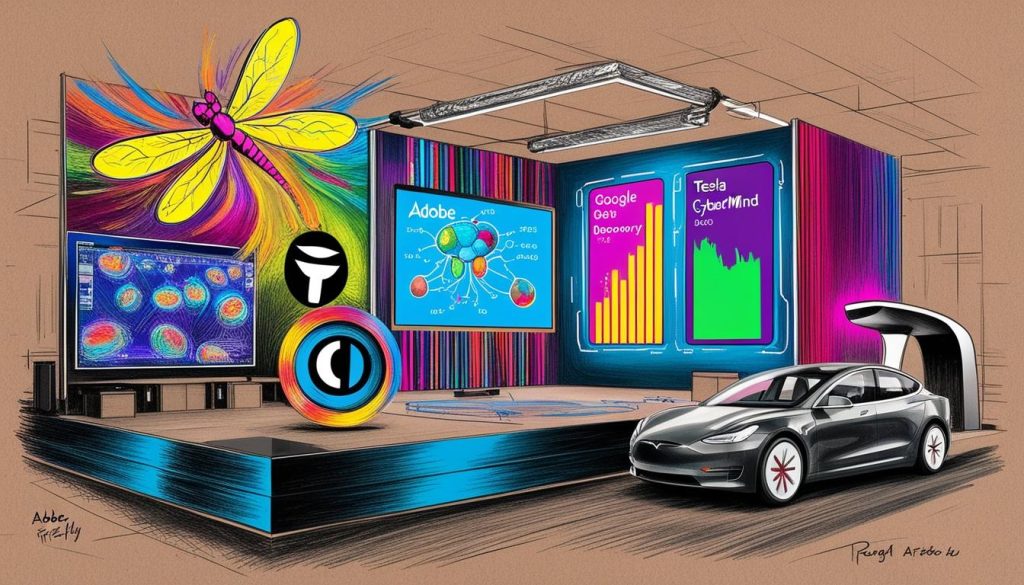In a week of significant announcements, Adobe, Google, Microsoft, OpenAI, and Tesla showcase AI developments that promise to transform industries from media to healthcare and transportation.
In a week filled with significant technological announcements, major companies like Adobe, Google, Microsoft, OpenAI, and Tesla have revealed their latest advancements in artificial intelligence (AI), marking significant strides across various sectors including media, pharmaceuticals, healthcare, eCommerce, and transportation.
Adobe’s Firefly Video Model
Adobe’s entry into AI video production with its Firefly Video Model promises to revolutionise the way corporations create media content. This innovative tool harnesses AI capabilities to streamline video production processes, substantially cutting down on time and costs. Firefly allows users to generate custom video content from simple text prompts across more than 100 languages, significantly enhancing efficiency. However, industry analysts assure that while this technology augments workflow, it is not intended to substitute human creativity but rather to complement it, ensuring that the creative spark remains a vital component of media production.
Google DeepMind’s Tx-LLM in Drug Discovery
Google DeepMind has unveiled its latest model, the Tx-LLM, which is set to transform pharmaceutical research and development. This specialised large language model promises to expedite drug discovery by providing more accurate predictions on drug properties and clinical outcomes, potentially reducing R&D timelines and associated costs. This development highlights an industry trend towards customized AI tools tailored to specific sectors, which can navigate intricate regulatory environments and optimise workflows. The implications in pharmaceuticals could be significant, potentially enabling the faster development of life-saving drugs.
Microsoft’s AI in Healthcare
Turning towards healthcare, Microsoft has made a significant push with its latest AI technologies focused on enhancing efficiency within the sector. These tools are designed to automate routine administrative tasks, improve data handling, and aid in better patient diagnostics. By deploying AI-powered chatbots to manage standard patient queries and using advanced algorithms to find patterns within medical data, Microsoft aims to alleviate administrative burdens on healthcare professionals. This, in turn, could allow more focus on patient care, enhancing both workflow efficiency and patient outcomes.
OpenAI’s New eCommerce Tools
In the realm of eCommerce, OpenAI’s Canvas tool and similar AI-driven platforms are changing the landscape by enabling real-time collaboration in content creation. Moving away from traditional dialogue-based systems, these new tools facilitate multilingual product descriptions and marketing content, improving consistency and productivity across teams. The enhanced contextual understanding and seamless human-AI interaction offered by these tools hold the potential to streamline workflow processes, freeing up human resources for more creative endeavours.
Tesla’s Cybercab Initiative
Finally, Tesla introduced the Cybercab, a futuristic, fully autonomous robotaxi expected to hit production in 2027. Priced under $30,000 and boasting an operating cost of $0.40 per mile, the Cybercab aims to redefine urban transportation with its driverless design that omits traditional controls. While the concept is bold, with potential savings and efficiency gains in urban transport, experts express caution regarding the ambitious timelines and the regulatory challenges that Tesla may face as it pursues this vision for autonomous vehicles.
Overall, these technological advancements exemplify the profound impact AI continues to have across various sectors. As these tools develop and become more integrated, stakeholders and regulators will need to adapt to these rapidly changing landscapes, considering both the opportunities and challenges they bring.
Source: Noah Wire Services








